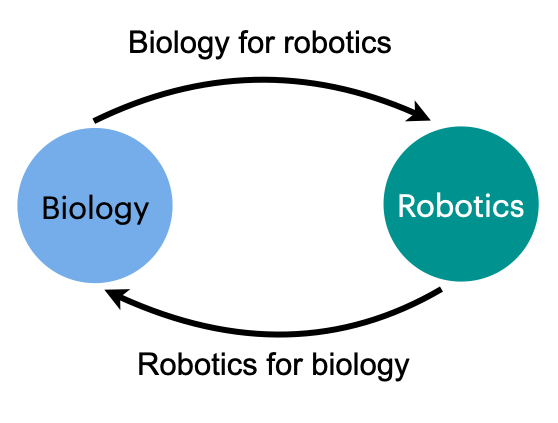Workshop Overview
Over half a billion years of evolution, animals evolved remarkable adaptations for locomotion in complex three-dimensional environments. For centuries, engineers have turned to these biological systems to seek inspiration for constructing functional, flexible, and efficient robotics. In the past decades, biologically inspired robotics has matured into a significant branch of robotics. Recently, biologists and interdisciplinary teams are using robots as viable testbeds to explore and evaluate hypotheses in animal behavior. This strategy offers a suitable alternative to traditional biological methods, which have several limitations, including the feasibility to minimize confounding influences and isolate effects, the effects of the experiment and the experimenter on the study animal, and other limitations imposed by the behavior of the animals, etc. This workshop aims to bringing latest results in bio-inspired robots and expand their applications in biological studies from individual locomotion to collective behavior. Current studies on bio-inspired robots are evolving due to a deeper understanding of biological principles. In return, these bio-inspired robotics are providing the perfect platform for biologists to better understand biological phenomena.

























